2020 浙江省嘉兴市中考英语真题及答案
一、完形填空
阅读下面短文,然后从各题所给的四个选项中选出一个最佳答案。
When you hear the world hero, you may think of someone like Mahatma Gandhi or
Nelson Mandela. But there are also "everyday" heroes-they may not be ___1___ to
the public, but they do what they can to help ___2___ people's lives as well. Everyday
heroes are normal people who are working to make the world a better place. ___3___
them is Robert Lee.
Lee grew up in New York City. ___4___ his family was not rich, he learned from
a young age the importance of ___5___ the waste of food. When in college, he was
part of a student group that gave out leftover(剩余的)food to ___6___ people.
This experience made him realize how ___7___ the problem of food wastage actually
was.
After he left university, Lee and a friend set up a(n)___8___ called Rescuing
Leftover Cuisine(RLC). Its purpose is to collect ___9___ food from restaurants
and send it for free to shelters(收容所)and food kitchens. Volunteers ____10____
the food from restaurants around the city and hand it out to those in need.
RLC operates ____11____. Using an app developed by Lee's team, restaurants
____12____ how much leftover food they have each day. Then volunteers are sent to
fetch it. The ____13____ is usually short, so volunteers can just do their deliveries
(递送)by ____14____ from the restaurants to the shelters. Lee believes this is
a quick way of delivery.
So far, Lee and his team have successfully ____15____ over 150,000 kilograms
of food, serving almost 300,000 ____16____ to people who need them. Lee has shown
that a ____17____ action can help people around us greatly. ____18____ may have
a greater influence than we imagine. When Lee is asked _____19_____ his next plan
is, he says there's still a lot to do. "It's just the ____20____. With more
restaurants, who knows how much more we can do."
1. A. safe
B. close
C. friendly
D.
�
well-known
2. A. record
B. share
C. improve
D. manage
3. A. Under
B. Beside
C. Among
D.
Opposite
4. A. If
B. As
C. When
D. Though
5. A. storing
B. avoiding
C. burning
recycling
6. A. sick
B. blind
C. lonely
homeless
7. A. easy
B. serious
C. funny
strange
8. A. club
B. school
C. business
organization
9. A. cold
B. cheap
C. unsold
uncooked
D.
D.
D.
D.
D.
10. A. pick up
B. go over
C. pay for
D. throw
away
11. A. badly
B. quietly
C. simply
D. slowly
12. A. report
B. notice
C. discuss
consider
13. A. visit
B. break
C. meeting
distance
14. A. flying
B. walking
C. skating
shipping
D.
D.
D.
15. A. saved
B. heated
16. A. jobs
B. meals
C. lent
C. rooms
D. grown
D. seats
17. A. small
B. secret
C. direct
D. social
18. A. It
19. A. who
B. He
B. when
C. You
C. what
D. They
D. where
�
20. A. need
B. time
C. promise
D.
beginning
二、阅读理解
阅读下面五篇材料,然后从各题所给的四个选项中选出一个最佳答案。
A
FUTURE VIEW
I think it will be great if they invent something
so that we only have to sleep for one or two hours
every day. Then we’d all have much more time to
do things and to enjoy ourselves. Life would be
better, I think, and everyone would do a lot more
with their lives.
Miguel
If I could choose anything, I’d go for a time
machine so that I could go back and do some things
differently. Of course, It will be great if there
that’s impossible— but wouldn't it be great if
it was possible? I wish I could go back in time
to when I was a kid and say some of the things
in a different way!
Hannah
It will be great
if there is some
kind of fuel(燃
料)we can use in
cars that won’t
produce any
pollution. I
guess there are
scientists right
now trying to do
that, and I hope
they’ll succeed
because the world
would be a much
cleaner place,
wouldn’t it?
Well, of course, the best thing is medicine for
Charlie
rally bad diseases(疾病).A lot of scientists
�
are working very hard to stop diseases like
Ebola, a terrible disease that has killed many
thousand people in Africa. So if they found a
special treatment for Ebola, or a way of
completely preventing it, life would be easier
in so many places.
Isabella
I wish there was a machine that did homework! Wouldn’t tat be fantastic? But I
guess teachers wouldn’t be very happy.
Georgina
21. Why does Hannah want to go back in time?
A. To be young again.
B. To live a better life.
C. To do something for Africans.
D. To say some words differently.
22. Who might be worried about the pollution of the world?
A. Miguel.
B. Isabella.
C. Charlie.
Georgina.
23. In which part of a newspaper may this passage appear?
A. Health.
Education.
B. Science.
C. Travel.
B
D.
D.
Is there a connection between music and language? According to recent studies,
the answer is yes: Music helps develop certain language abilities in the brain.
A study from Northwestern University shows that playing a musical instrument
�
can improve a person's hearing ability. As a part of the study, two groups of people
listened to a person talking in a noisy room. The people in the first group were
musicians, while those in the second group had no musical training. The musicians
were found to be able to hear the talking person more clearly.
Musicians hear better, says study leader Nina Kraus, because they learn to pay
attention to certain sounds. For example, when the violinists play in an orchestra
(管弦乐队), they must listen closely to what they are playing and ignore(忽视)the
other sounds. In this way, musicians can hear certain sounds better, even in a room
with lots of noise.
Gotfried Schlaug, a doctor at Harvard Medical School, works with stroke(中
风)patients.
Because of their illness, these people cannot say their names, addresses, or
other information normally However, they can till sing. Dr. Schlaug was surprised
to find singing words helped his patients finally speak. Why does this work? Schlaug
isn't sure. Music seems to be able to make different parts of the brain active,
including the bad parts. In some way, this helps patients use those parts of the
brain again.
So music is not only enjoyable, but also good for us in many other ways. Playing
an instrument or singing, says Nina Kraus, can help us do better in school and keep
our brain sharp as we get older.
24. What were the people in the first group asked to do in the study of Northwestern
University?
A. Listen to different kinds of music.
B. Make some noise in an empty
room.
C. Give the second group musical training.
D. Find out what the talking person
was saying.
25. The writer uses the example of violinists in Paragraph 3 to explain________.
A. how musicians play in an orchestra
B. how musicians ignore certain
sounds
�
C. why musicians have better hearing ability
D. why musicians are not afraid of
loud noise
26. Gottfried Schlaug helps his stroke patients speak by________.
A. playing music for them
B. getting them to sing words
C. teaching them to play instruments
D. joining the bad parts of their
brain
27. What is the main purpose of the passage?
A. To introduce different ways of playing music.
B. To give some advice about making our brain active.
C. To show the relationship between music and language abilities.
D. To share the results of recent studies on treating stroke patients.
C
It's late evening in the middle of the winter. The snow is deep, but off I go
into the wild.
Suddenly, I hear it: the howl(嚎叫)of wolves. Excitedly, I walk faster in the
direction of the howling.
I've been working as a volunteer wolf tracker in Yellowstone National Park for
over a year It's my job to follow wolves to record information about them. Like
wolves, however, I don't work alone. I'm one of a team of people who have been in
a project to help reintroduce wolves to the park.
Humans have always feared wolves. From fairy tales to movies, the wolf is always
the bad guy —a danger to humans and other animals. In the 1920s, the organizers
of the park shared this view about wolves and made the decision to drive them away
from the park. As a result, the number of elk (麋鹿)in the park increased. The
elk started looking for food near river banks since they didn't have to worry about
wolves. This, in turn, stopped trees from growing along the rivers, doing great
harm to the environment there.
The return of wolves has already made a big difference. To begin with, the elk
soon learned to stay away from the rivers, so new trees have been able to grow there.
�
The trees become home to new wildlife, such as birds, and provide food for more
animals.
The park is now becoming more and more popular with those who want to see wolves
in their natural environment. It has also helped the local people make more money.
Tourists visit the area, stay in the local hotels, and eat in the local restaurants.
Looking at the wild animals and the beautiful sceneries around me, I am amazed
at the changes the wolf has made to Yellowstone. And happily, it is playing a good
guy in this story.
28. According to the passage, one of a wolf tracker’s jobs is to________.
A. catch wolves in the park
B. feed wolves in the wild
C. stop wolves from killing elk
D. collect information about
wolves
29. Why did the organizers drive the wolves away from the park in the 1920s?
A. The wolves were always howling at night.
B. The elk in the park were in danger of dying out.
C. The wolves had done great harm to the environment.
D. The park was thought to be unsafe with wolves around.
30. Paragraphs 4 and 5 are mainly about the _______ that wolves have brought to
Yellowstone.
A. risks
B. troubles
C. changes
D.
competitions
31. What does the writer mean by the underlined sentence in the last paragraph?
A. Wolves are important to Yellowstone.
B. Yellowstone has been home to
wolves.
C. The wolf and the elk live in peace now.
D. The number of wolves is growing
fast.
D
Whenever I’m invited to somebody’s house for the first time, I’ll take a
close look at their bookshelves. What they keep on their shelves, in my eyes, is
�
a reflection(反映) of their personal tastes and interests. The books on a bookshelf
tell the story of a life.
My own shelves are a kind of roadmap through my life, telling a chronological
tale. First up come my favorite childhood reads, like Watership Down and His Dark
Materials. The collection then moves on to teenage things I read in school —
Nineteen Eighty-Four, The Handmaid’s Tale and A Clockwork Orange. Finally, we come
out of full-time education and enter the real world, and this part is a reflection
of my professional(职业的) life, from the first exciting days of work experience
to the present.
If you pointed to any book on my shelves, I could name the year I got it, where
I was working, and probably where I was living at the time.
__▲ It is an easy way to get to know about his hopes, dreams and interests.
And a big part of that story is how we arrange(排列) our books, and get on with
them. It’s such a personal thing, different from each other. Some want to be with
their books in every room, others have them on shelves, behind glass or simply lining
their floors. Each home has a story to tell through the way they live with their
books.
It’s often said that what we read says something about who we are. The way
we fill our bookshelves might also send a message about ourselves. From the pile
of books on your bedside table to your well-organized shelves, whether we notice
it or not, our book collections are telling a story before a single page has been
turned.
32. The books on the writer’s own shelves are organized according to _________.
A. their prices
B. their writers
C. his personal interests
D. the periods of his life
33. Which of the following is the best sentence to fill in the blank in Paragraph
4?
A. Every book is worth reading.
B. Each bookshelf holds a special
dream.
�
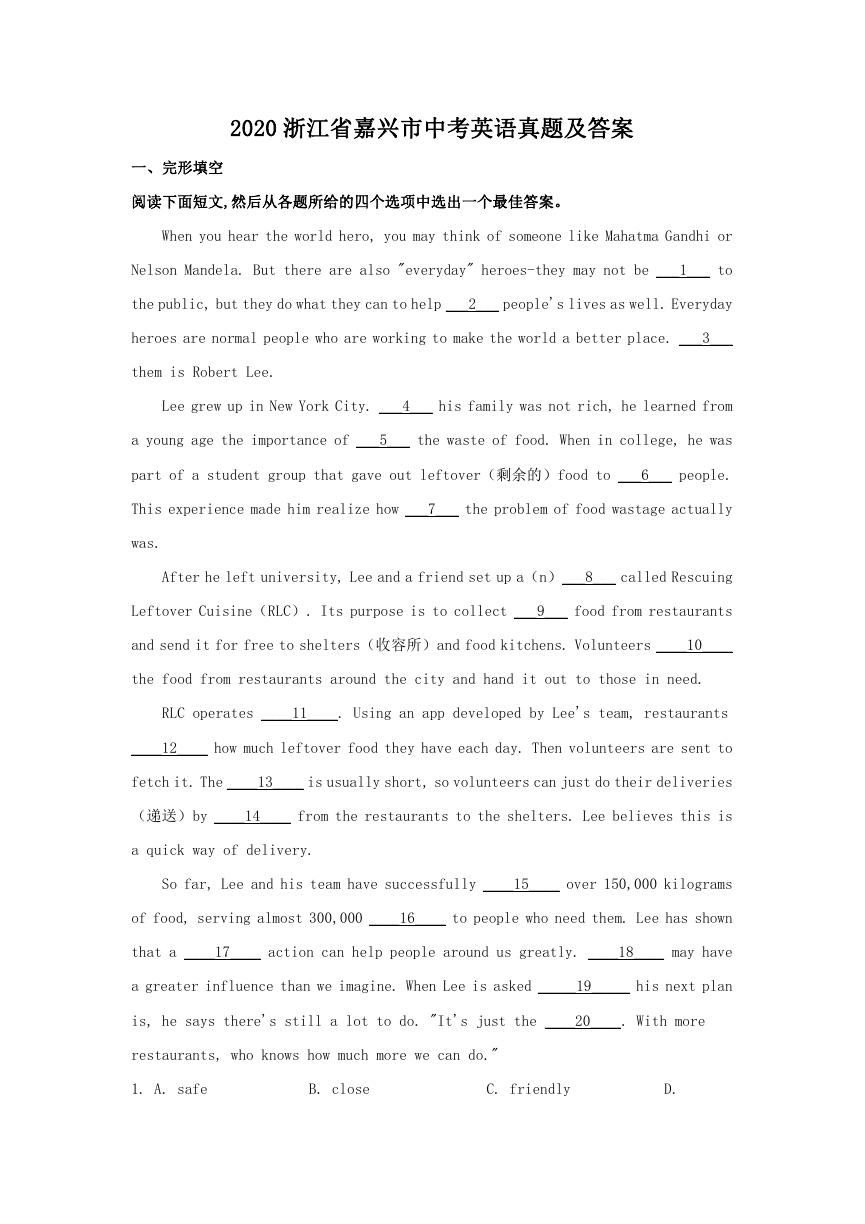
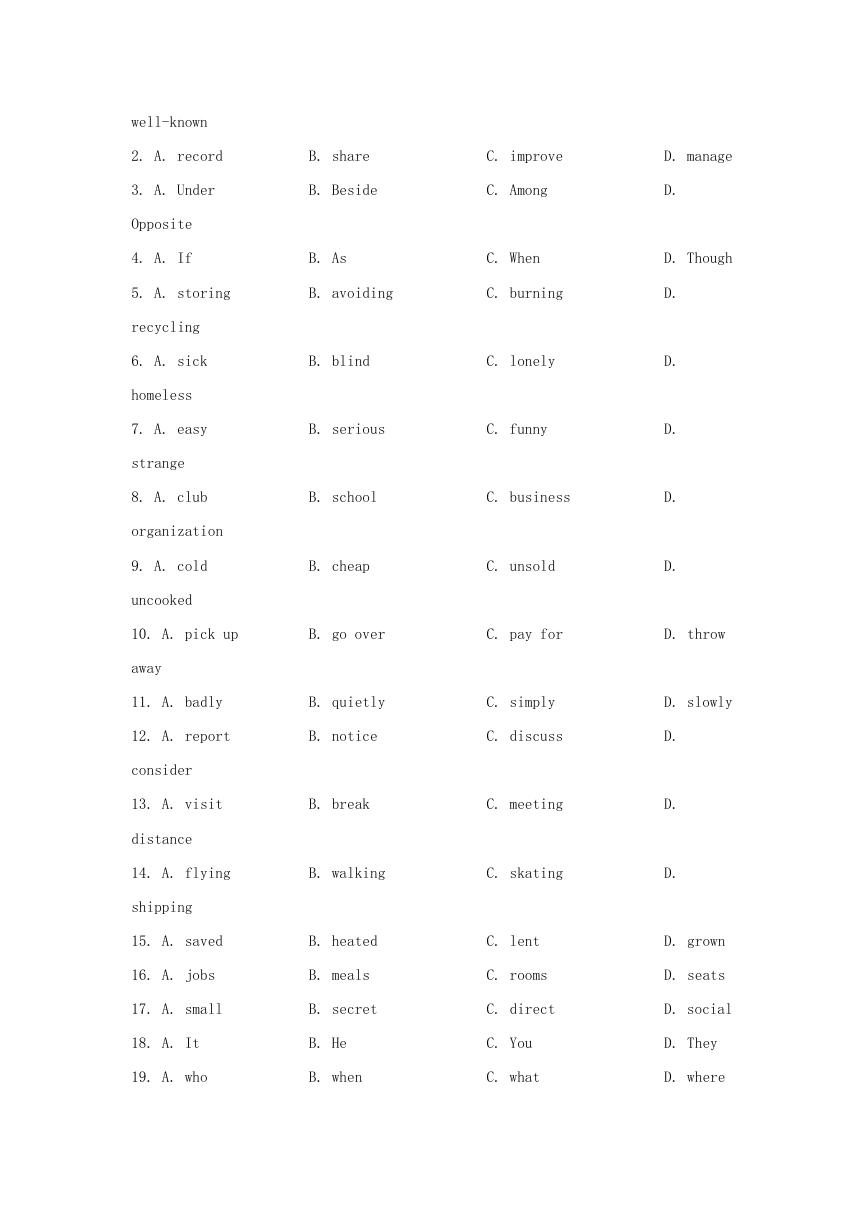
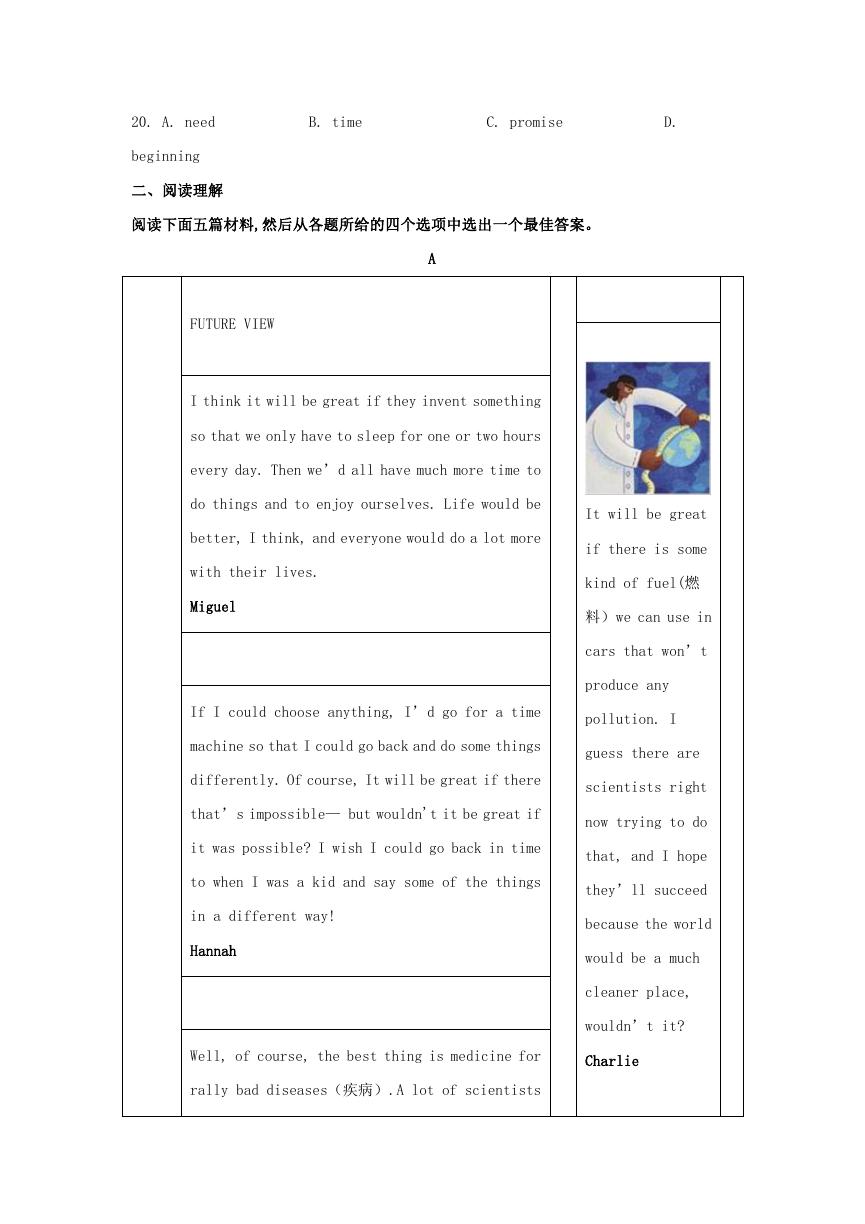
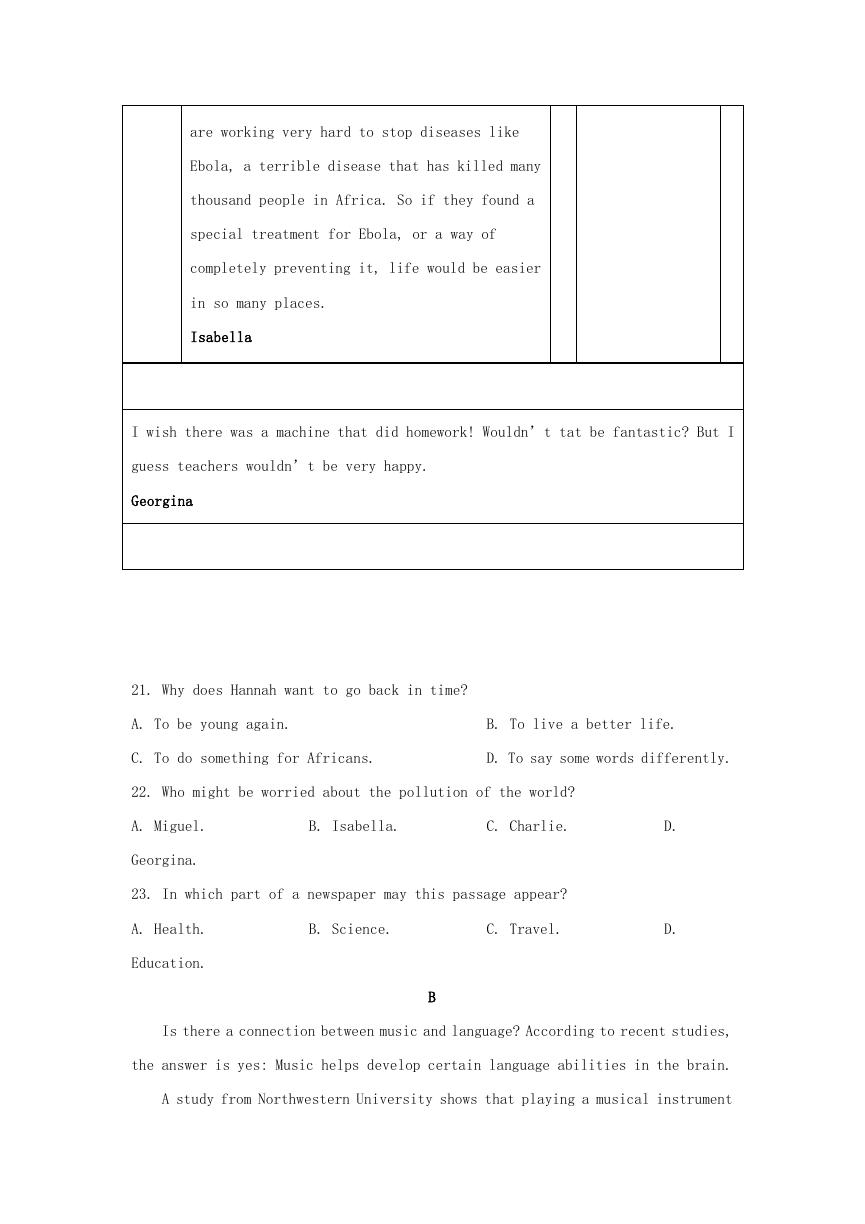
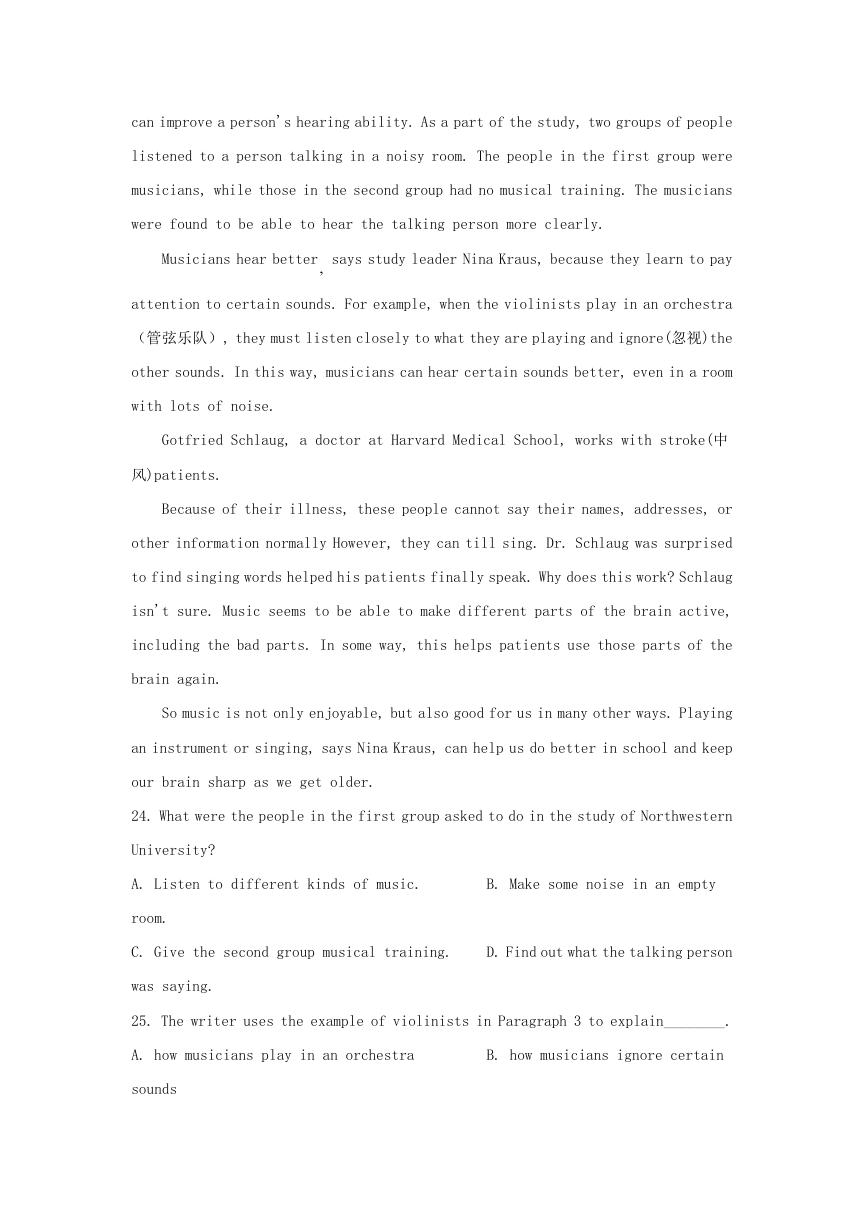
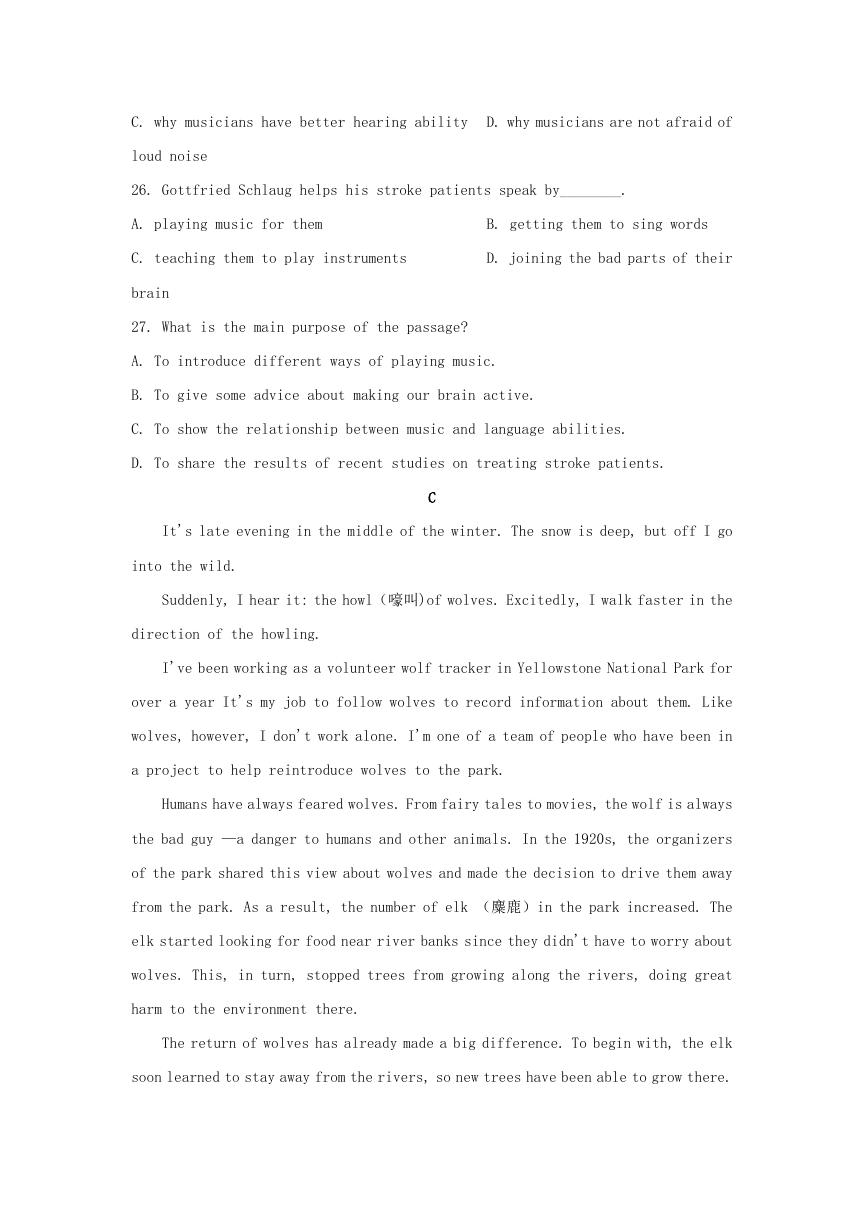
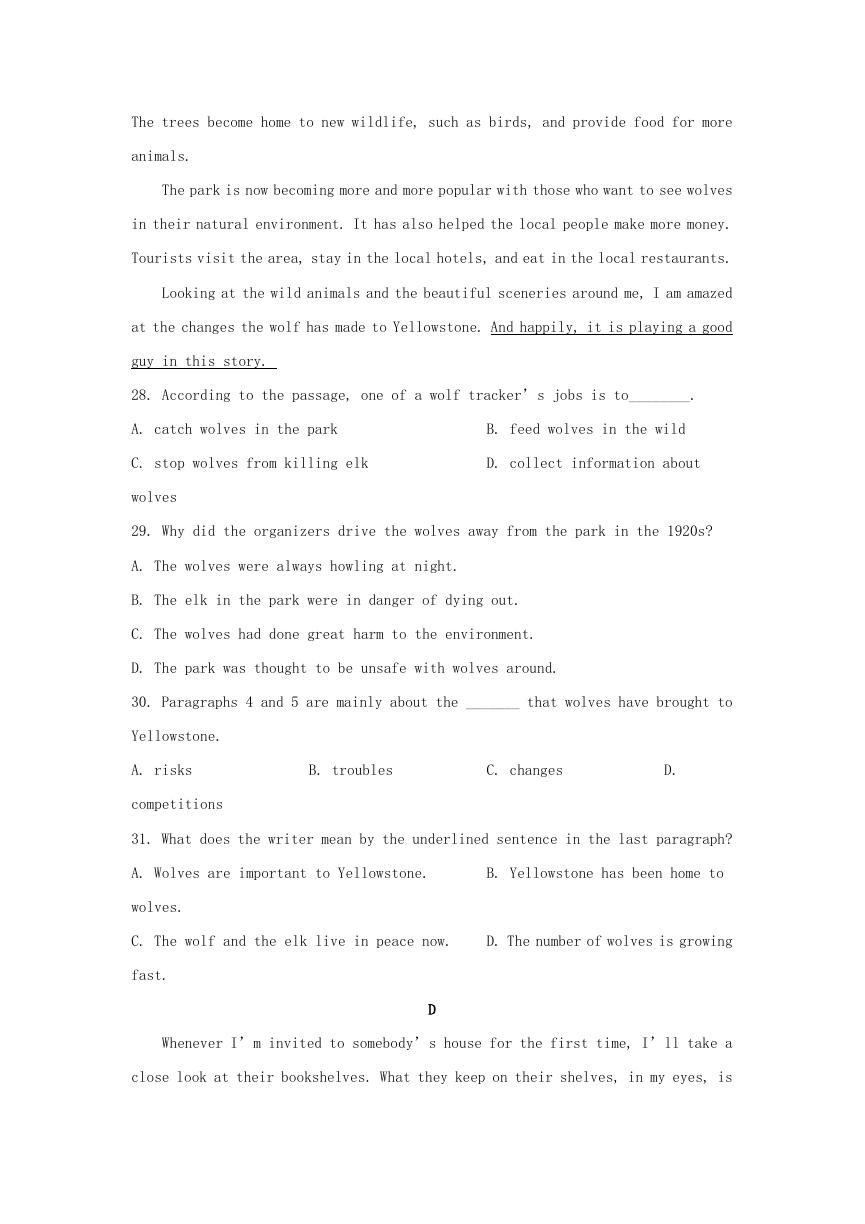
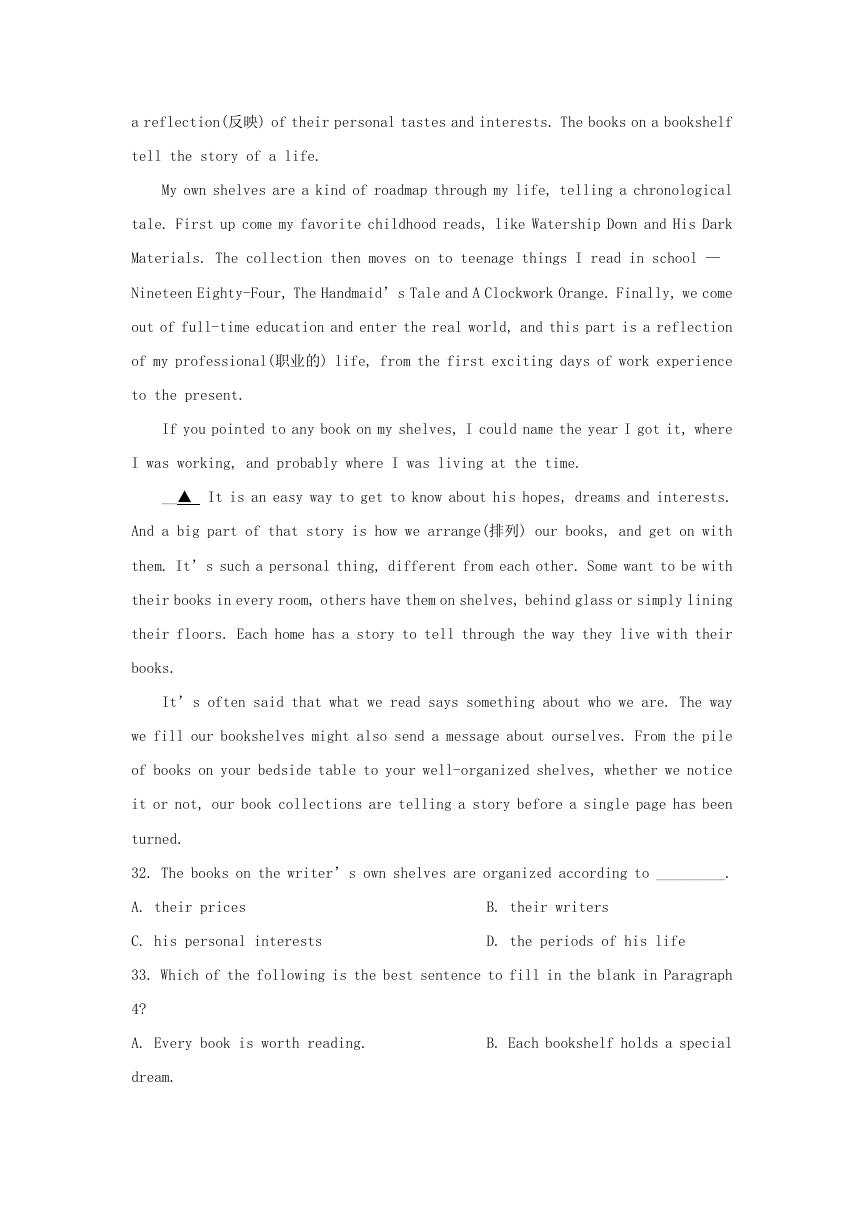








 2023年江西萍乡中考道德与法治真题及答案.doc
2023年江西萍乡中考道德与法治真题及答案.doc 2012年重庆南川中考生物真题及答案.doc
2012年重庆南川中考生物真题及答案.doc 2013年江西师范大学地理学综合及文艺理论基础考研真题.doc
2013年江西师范大学地理学综合及文艺理论基础考研真题.doc 2020年四川甘孜小升初语文真题及答案I卷.doc
2020年四川甘孜小升初语文真题及答案I卷.doc 2020年注册岩土工程师专业基础考试真题及答案.doc
2020年注册岩土工程师专业基础考试真题及答案.doc 2023-2024学年福建省厦门市九年级上学期数学月考试题及答案.doc
2023-2024学年福建省厦门市九年级上学期数学月考试题及答案.doc 2021-2022学年辽宁省沈阳市大东区九年级上学期语文期末试题及答案.doc
2021-2022学年辽宁省沈阳市大东区九年级上学期语文期末试题及答案.doc 2022-2023学年北京东城区初三第一学期物理期末试卷及答案.doc
2022-2023学年北京东城区初三第一学期物理期末试卷及答案.doc 2018上半年江西教师资格初中地理学科知识与教学能力真题及答案.doc
2018上半年江西教师资格初中地理学科知识与教学能力真题及答案.doc 2012年河北国家公务员申论考试真题及答案-省级.doc
2012年河北国家公务员申论考试真题及答案-省级.doc 2020-2021学年江苏省扬州市江都区邵樊片九年级上学期数学第一次质量检测试题及答案.doc
2020-2021学年江苏省扬州市江都区邵樊片九年级上学期数学第一次质量检测试题及答案.doc 2022下半年黑龙江教师资格证中学综合素质真题及答案.doc
2022下半年黑龙江教师资格证中学综合素质真题及答案.doc